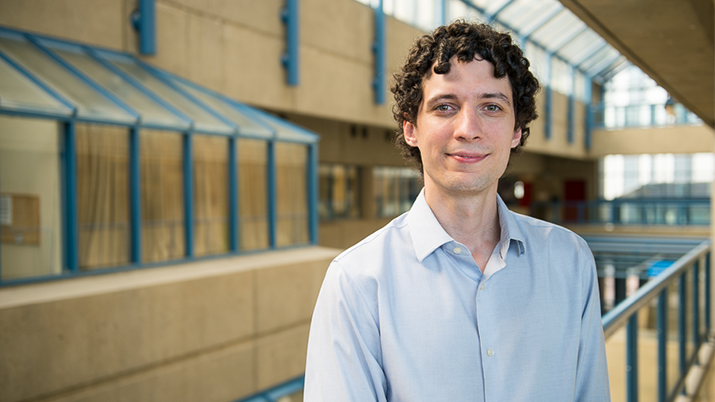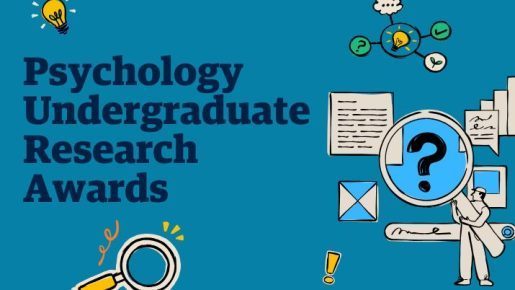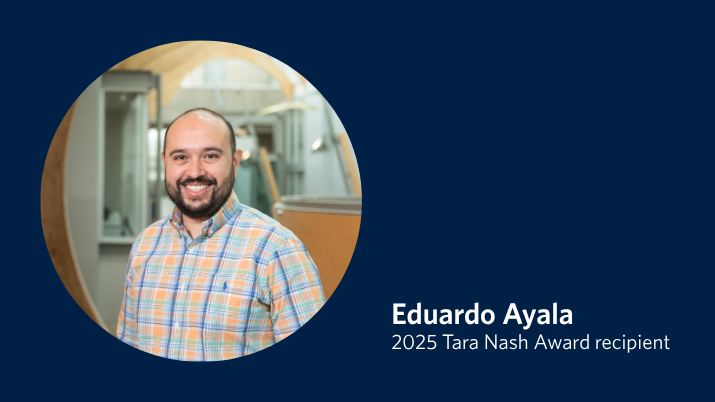

Dr. Darko Odic in the Douglas T. Kenny Building
Join us in congratulating Dr. Darko Odic, who received a Jacobs Research Foundation Fellowship for 2021 – 2023.
The Jacobs Foundation Research Fellowship Program is a globally competitive fellowship program for highly talented and innovative early career researchers whose work is dedicated to improving the development, learning and living conditions of children and youth.
Dr. Odic and his research team at UBC’s Centre for Cognitive Development investigate how children acquire language compared to how they acquire math skills, how these abilities develop from preschool onward, and how they relate to higher cognitive abilities. Dr. Odic will use this support to develop a new research line examining the role of prediction and surprise when children are learning and using formal math abilities.
“I am incredibly excited for the opportunity to work with the Jacobs Foundation through their Fellowship program, which uniquely focuses on bridging theoretical and applied work in developmental psychology. The Foundation’s generous funding will play a central role in my lab’s ongoing and future working relating our intuitive number sense to formal mathematics in children, including those struggling with math in early schooling.”
“I am incredibly excited for the opportunity to work with the Jacobs Foundation through their Fellowship program, which uniquely focuses on bridging theoretical and applied work in developmental psychology. The Foundation’s generous funding will play a central role in my lab’s ongoing and future working relating our intuitive number sense to formal mathematics in children, including those struggling with math in early schooling,” says Odic. “This funding will be used for starting a new line of work in my lab investigating whether changes in pupil dilation can be used as a measure of prediction error and surprise when children are solving math problems, and whether we can use this biological marker to identify children who are especially likely to struggle in learning formal math abilities.”


